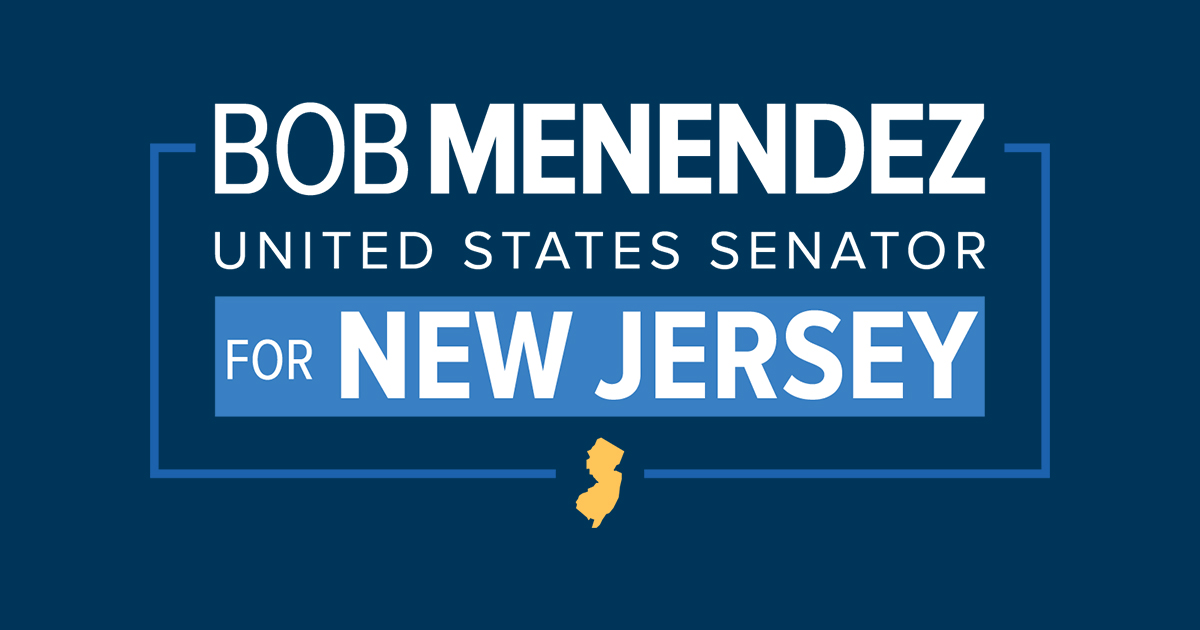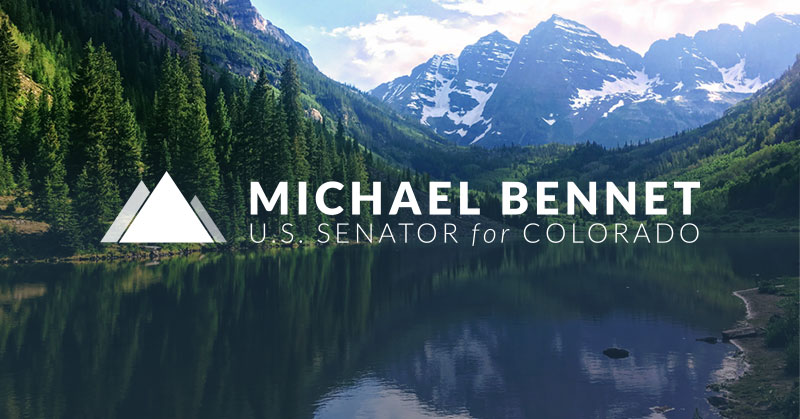Source: United States Senator for Colorado Michael Bennet
Washington, D.C. – Today, Colorado U.S. Senators Michael Bennet, John Hickenlooper, and a bipartisan majority of the Colorado Congressional Delegation invited Vice President Kamala Harris to visit Colorado and its thriving space industry. Harris was recently appointed Chair of the National Space Council, and as she works to identify the Council’s priorities, Bennet, Hickenlooper, and the lawmakers are inviting the vice president to visit Colorado to experience firsthand the innovation of the state’s private and public space industry.
“Colorado is the largest space economy per capita in the country. Our state is home to over 500 space-related companies and suppliers, including nine of the nation’s largest aerospace contractors,” wrote Bennet, Hickenlooper and the lawmakers in the letter. “Colorado aerospace companies directly employ more than 30,000 people, while an additional 200,000 work in space-related jobs. This concentration of technical expertise from the Eastern Plains to the Western Slope drives cutting-edge innovation that benefits our entire country.”
They continued: “Our skilled workforce is one of the primary reasons why Colorado is at the nexus of space operations for the Intelligence Community and the Department of Defense.”
In the letter, Bennet, Hickenlooper, and the lawmakers also reaffirm that due to Colorado’s robust space industry and national security missions and installations, Colorado should be the permanent home for the U.S. Space Command. Following the Trump Administration’s decision to permanently move Space Command from Colorado to Huntsville, Alabama in January, Bennet, Hickenlooper, and their colleagues have continued to urge the Biden Administration to review the decision.
In addition to Bennet and Hickenlooper, the letter was signed by U.S. Representatives Doug Lamborn (R-Colo.), Joe Neguse (D-Colo.), Jason Crow (D-Colo.), Ed Perlmutter (D-Colo.), Diana DeGette (D-Colo.), and Ken Buck (R-Colo.).
The text of the letter is available HERE and below.
Dear Madam Vice President:
Congratulations on your recent appointment as Chair of the National Space Council. As you work to identify the Council’s priorities, we invite you to visit Colorado to experience firsthand the dynamism of our state’s private and public space industry.
Colorado is the largest space economy per capita in the country. Our state is home to over 500 space-related companies and suppliers, including nine of the nation’s largest aerospace contractors. Colorado aerospace companies directly employ more than 30,000 people, while an additional 200,000 work in space-related jobs. This concentration of technical expertise from the Eastern Plains to the Western Slope drives cutting-edge innovation that benefits our entire country.
As our nation’s space economy continues to grow, its future depends on dynamic education and research. Colorado is at the heart of this work. The U.S. Air Force Academy has the nation’s top undergraduate aerospace engineering program. The University of Colorado Boulder receives more NASA funding than any other public university. The Colorado School of Mines’ Space Resources Program is the world’s first multi-disciplinary graduate program focused on space resources. Across the state, there are 21 universities and institutions that participate in the Space Grant Consortium, providing students from all backgrounds an opportunity to partake in space research. With each investment Colorado makes in space education, our state contributes to a highly-trained workforce with the specialization necessary to ensure the nation’s primacy in space.
Our skilled workforce is one of the primary reasons why Colorado is at the nexus of space operations for the Intelligence Community and the Department of Defense. Our state is home to the National Space Defense Center, U.S. Northern Command, North American Aerospace Defense Command, Cheyenne Mountain Air Station, Buckley Space Force Base, and the National Reconnaissance Office’s Aerospace Data Facility-Colorado. Eight of the nine current Space Force Deltas are based in Colorado. The ongoing success of these missions and installations in assessing and mitigating vulnerabilities in space further reaffirms Colorado as the best permanent home for the U.S. Space Command. At a time when the threats in this domain are growing by the day, our nation can ill-afford the delay, expense, and attrition associated with relocating Space Command.
We look forward to working together on these and other priorities in your capacity as Chair of the National Space Council and invite you to visit Colorado to see how our state leads the country in space security, innovation, and education.
Sincerely,
Space Command Background
In 2019, Bennet and former U.S. Senator Cory Gardner (R-Colo.) led the Colorado delegation in writing to Acting Secretary of Defense Patrick Shanahan and to Acting Secretary of the Air Force Matthew Donovan and Commander of U.S. Space Command General Jay Raymond to emphasize what Colorado offers to be the permanent home of U.S. Space Command. Bennet and Gardner also published an op-ed in the Colorado Springs Gazette advocating for the basing decision. Following the White House’s official announcement of the creation of U.S. Space Command in August 2019, the entire Colorado Congressional Delegation reiterated their call to re-establish the headquarters in Colorado. In the original basing decision process, of the six possible locations that the Air Force named, four were in Colorado: Peterson Air Force Base (AFB), Schriever AFB, Buckley AFB, and Cheyenne Mountain Air Force Station. In the fall of 2019, the Air Force named Peterson AFB the temporary home to U.S. Space Command.
In December 2019, Bennet met with Secretary of the Air Force Barbara Barrett and spoke with the Commander of U.S. Space Command General John W. Raymond to discuss the importance of a focus on national security space and to reiterate his support for basing Space Command in Colorado.
In May 2020, the Air Force announced a new basing decision process that evaluated self-nominating communities, like Aurora and Colorado Springs, on their ties to the military space mission, existing infrastructure capacity, community support, and cost to the Air Force. The Air Force also announced Peterson AFB in Colorado Springs would remain the provisional location of the command until 2026. Later in May, Bennet and Gardner wrote a letter to Polis calling for him to support military spouse licensure reciprocity in the state, which Polis then signed into law in July 2020. Spouse licensure reciprocity was a component of the Air Force’s evaluation of each nominating state’s support for military families. Following passage of Colorado House Bill 20-1326, the entire Colorado Congressional Delegation, Polis, and Lieutenant Governor Dianne Primavera wrote to Defense Secretary Mark Esper and Barrett to highlight the new Colorado law and further demonstrate that Colorado is the best state to serve as the permanent home of the U.S. Space Command.
In June 2020, Bennet welcomed Polis’ endorsement of the self-nomination of both the Aurora and Colorado Springs communities to compete to be the permanent home for U.S. Space Command. At the end of August 2020, the Aurora and Colorado Springs communities submitted their questionnaire responses to the Department of the Air Force completing the next step in the basing process.
In August 2020, Bennet visited Peterson AFB and Schriever AFB for an update on the U.S. Space Command mission and stand up. He also met with General Dickinson, who assumed command in August, and learned about advancements at the National Space Defense Center.
In November 2020, the Air Force announced Colorado Springs as a finalist for the U.S. Space Command headquarters.
In December 2020, Bennet and Hickenlooper joined more than 600 state, federal, local, county and municipal officials, businesspeople, philanthropists, civic leaders, military officials, entrepreneurs and Coloradans from across the state in a letter urging Trump to keep the Command in the Centennial State.
In January 2021, following the relocation announcement, Bennet and Hickenlooper released a statement denouncing the decision and expressing concern that the Trump White House influenced the decision for political reasons.
In January 2021, Bennet also led a letter from the entire Colorado Congressional Delegation that urged President Joe Biden to suspend the Trump Administration’s decision to move U.S. Space Command from Colorado Springs, Colorado, to Huntsville, Alabama until the administration conducts a thorough review.
In May 2021, Bennet and U.S. Senator Mark Warner (D-Va.), Chairman of the Senate Select Committee on Intelligence, urged President Biden to fully consider how the move may affect Intelligence Community dependencies and missions as well as the country’s ability to maintain superiority in space.





